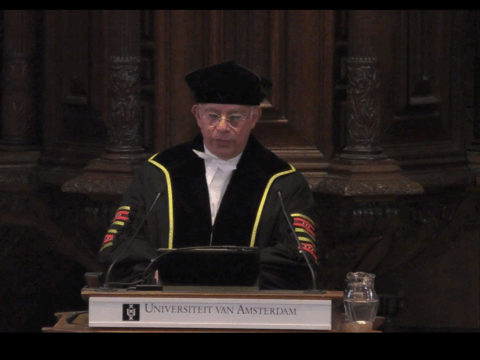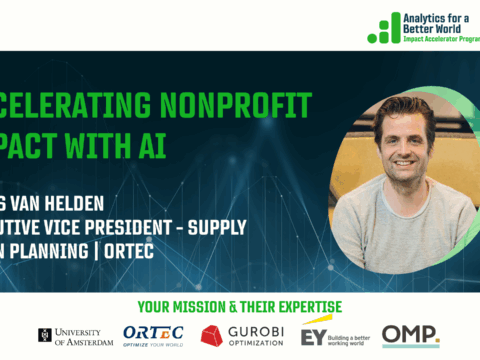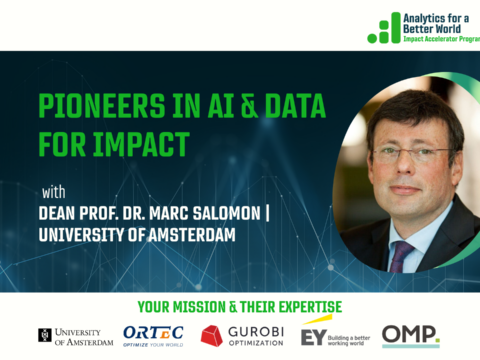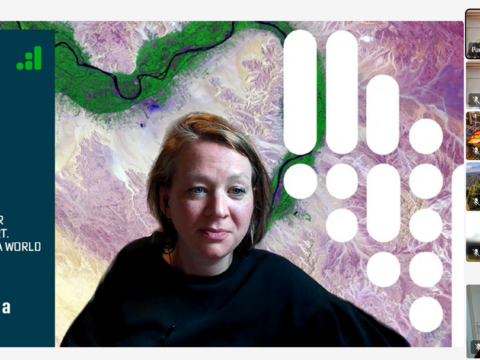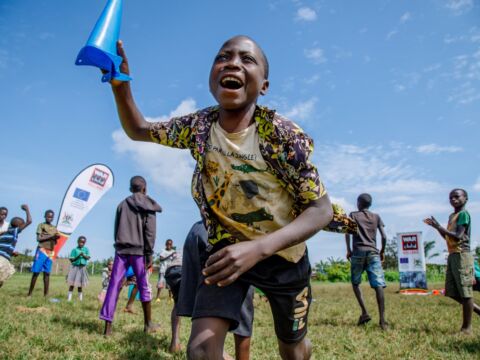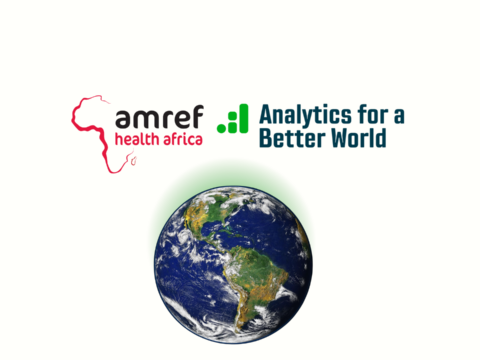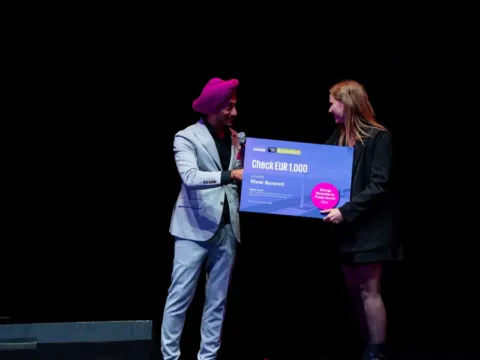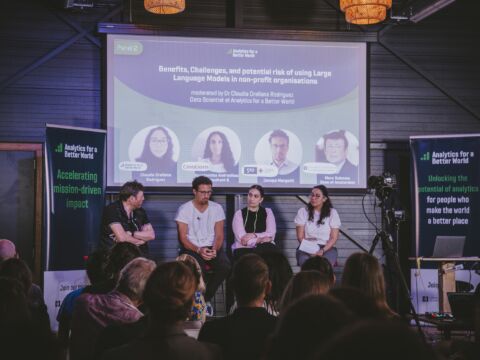ORTEC
See profileFrans van Helden
See profileAccelerating nonprofit impact with AI
A conversation with Frans van Helden
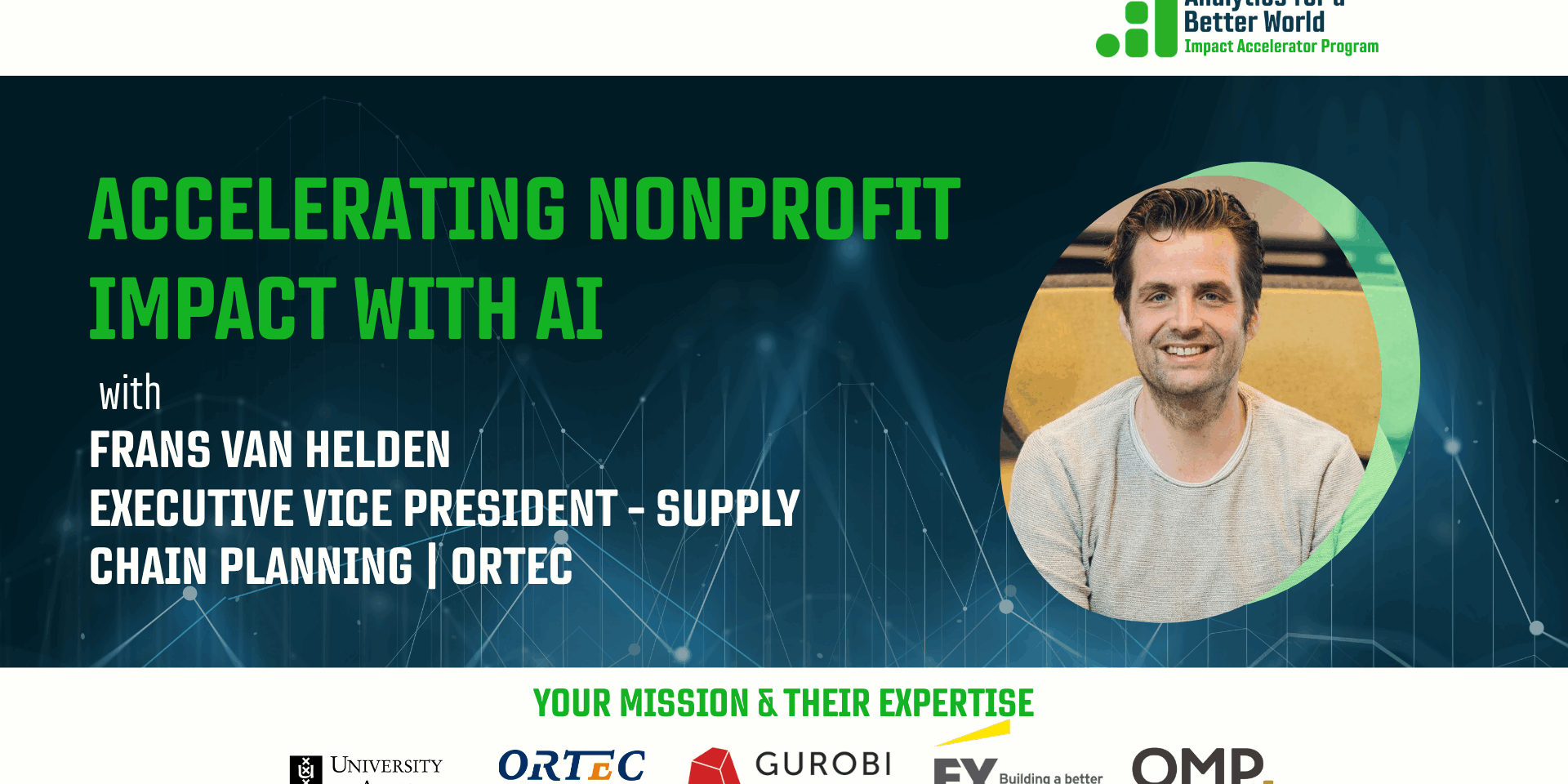
A conversation with Frans van Helden – ORTEC | Frans van Helden | What happens when the world’s best data and AI experts apply their skills and share their tools with nonprofits to solve pressing global challenges? They accelerate progress. This is the promise of Analytics for a Better World (ABW), the nonprofit institute founded […]
What happens when the world’s best data and AI experts apply their skills and share their tools with nonprofits to solve pressing global challenges? They accelerate progress. This is the promise of Analytics for a Better World (ABW), the nonprofit institute founded three years ago by ORTEC and the University of Amsterdam Business School. Its mission: to bridge the gap between advanced AI applications and the nonprofit sector.
ORTEC is a global leader in optimization software and data science solutions, delivering measurable results for industries from retail to healthcare. That expertise is now applied to nonprofits through ABW.
Now, with the launch of the Impact Accelerator Program, ABW is taking its most significant step yet. Five organizations will be selected to work side by side with world-class AI and data analytics experts, tackling critical challenges while building the in-house capability to keep innovating long after the program ends.
We are speaking with the people who make this all possible to mark this launch. The first in this series is Frans van Helden, EVP Supply Chain Planning at ORTEC.
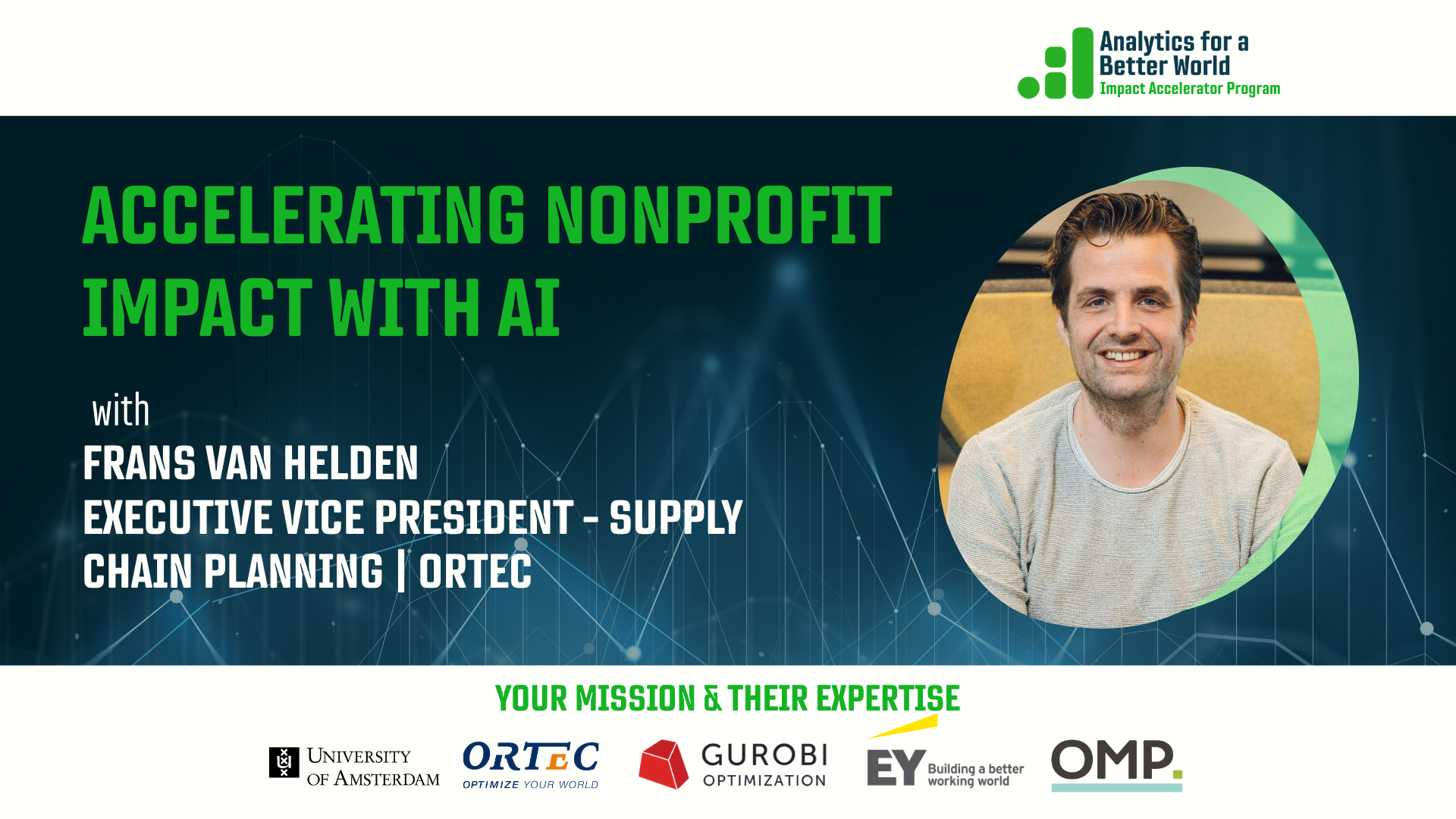
Who deserves AI more than organizations trying to make the world a better place?
It’s hard to imagine who deserves AI more than nonprofits working to make the world better,” Frans says. Three years ago, ORTEC hit a milestone: 40 years of transforming businesses through AI and mathematics. “I felt that milestone was the perfect moment to give back,” Frans recalls. “The University of Amsterdam has brilliant AI research for nonprofits; we have the power to implement it. Together, we could do something special.
The past three years have proven what’s possible for nonprofits. ABW’s collaborations have helped organizations like The Ocean Cleanup halve their timeline, while other projects have optimized medicine distribution and improved disaster response.
At ORTEC we typically see 10 to 20 percent better results with the same resources through AI,” Frans notes. “That same efficiency boost is absolutely achievable for nonprofits.
Give a person a fish or teach them to fish
The Impact Accelerator Program represents an evolution in ABW’s approach. After three years of successful individual projects, the team realized one-off collaborations weren’t enough.
The saying goes: Give a person a fish, you feed him for a day. Teach a person to fish, you feed them for a lifetime.” Frans says. “With AI and analytics, we help nonprofits become organizations that can keep innovating long after our program ends enabling them to build resilience.
Five organizations will receive €120,000 worth of expert guidance each, working directly with specialists from UvA, ORTEC, TomTom, EY, Gurobi and OMP.
Our main focus is to combine expertise and implement solutions that will benefit the organisation as much as the people.
The challenges that excite us most
When asked what type of organizations he hopes will apply, Frans’ enthusiasm is clear:
I’d love to work with organizations tackling logistics and distribution challenges. Take the World Food Program for example: World hunger is a logistics problem, not a food problem. Food exists but it’s in the wrong place at the wrong time. We can help improve food distribution through the Accelerator Program.
ORTEC’s expertise spans three core areas: supply chain optimization, workforce management, and data science innovation.
Healthcare delivery, medicine access, disaster relief coordination, these are all challenges about getting the right resources to the right place at the right time,” Frans explains. “We solve these problems daily for companies with hundreds of thousands of employees. Imagine applying this knowledge to organizations saving lives.
But Frans emphasizes they’re open to all impact focused challenges:
If you have data and a complex problem, there’s likely something we can do. That spans from the routing of ships at the Ocean Cleanup, all the way to making healthcare accessible for everyone.
Most organizations use maybe 10% of their data’s potential
The untapped potential in the nonprofit sector both frustrates and excites Frans:
Look at the world’s top companies; most are technology companies. They’ve succeeded by leveraging analytical capabilities that transform how they operate. That same transformation is possible for nonprofits.
With only 17 percent of Sustainable Development Goals on track for 2030 and funding pressure mounting, the timing is critical.
Especially now, AI helps organizations achieve more with what they have,” Frans notes. “20 percent more people served, 20 percent more impact, with the same budget.
Apply with your biggest operational challenge
For organizations considering applying, Frans offers direct advice:
Apply with your biggest challenge. That’s probably the problem most worth solving, and there’s a very high chance AI can contribute something meaningful.
But, he also understands the hesitation some nonprofits might have:
You’re busy with day-to-day operations. However, the short-term time investment opens a world that will transform how you achieve your mission. The accelerator is about co-creating solutions that strengthen your existing capabilities.
Frans points out that the combination is key:
Many nonprofits already have talented data scientists, but we offer specialized expertise and additional capacity. Your domain knowledge and existing data capabilities, combined with our technical resources and experience, create solutions neither could achieve alone. Together, we strengthen your capacity for lasting impact.
When nonprofits succeed, we all benefit
Frans envisions the program sparking sector-wide change.
When we demonstrate that nonprofits can achieve dramatically better outcomes, others will follow. “His enthusiasm for potential applicants is genuine: “I hope organizations have the openness to take this leap. I truly believe it will be transformative, not just for them, but for everyone they serve. This is a chance to multiply your impact in ways you might not have imagined possible.
As our conversation concluded, Frans’s commitment was clear:
Technology, expertise, and the will to create change are all here, working together. When nonprofits succeed, we all benefit. That’s why we’re here.
This article is part of ABW’s Impact Accelerator series, spotlighting the partners and vision behind AI-powered social impact.
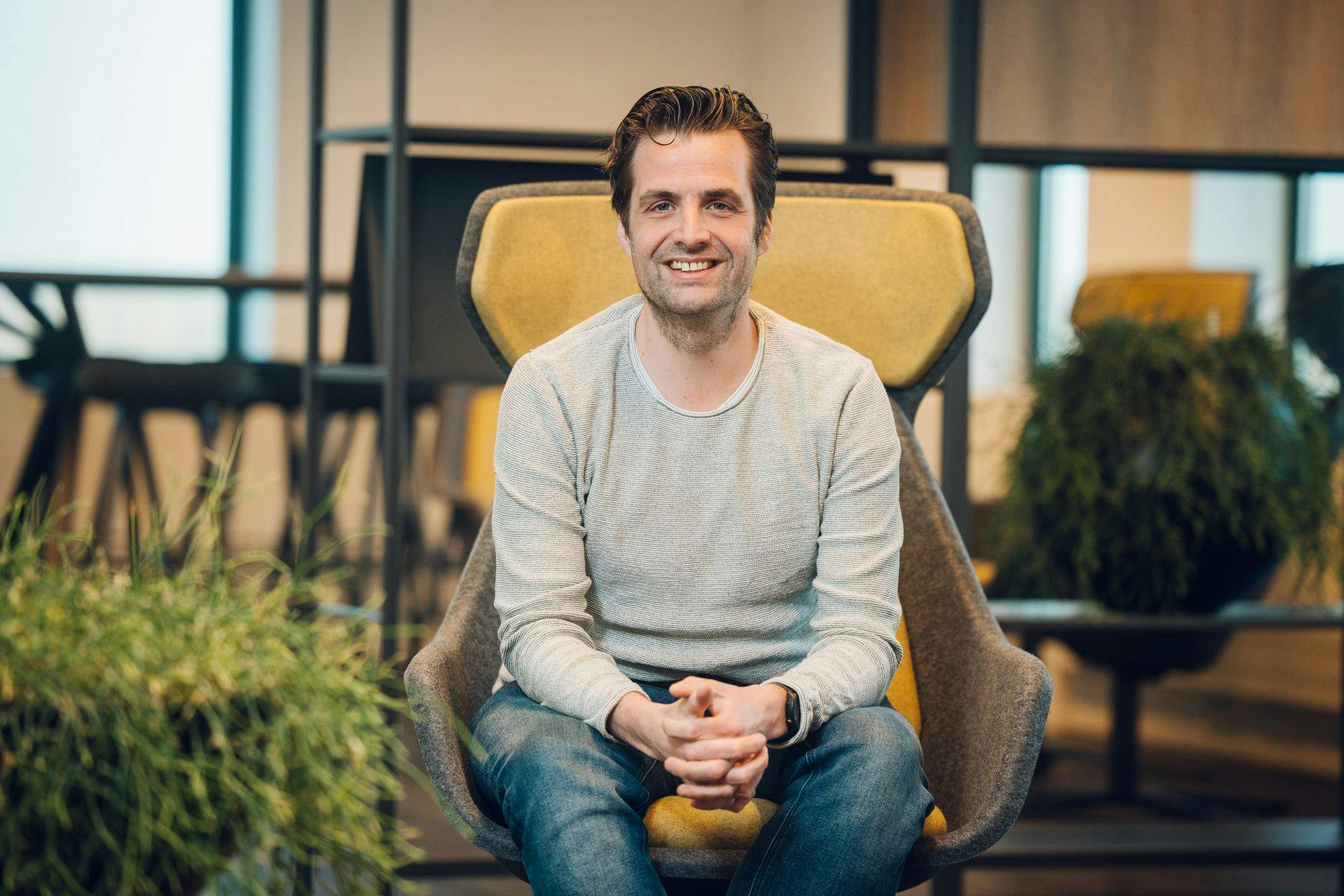
As the Executive Vice President (EVP) of the Supply Chain Planning division within ORTEC, Frans’s overarching goal is to exceed client expectations by continuously delivering tangible and enduring value. His commitment to diversity and technology integration into business processes highlights a forward-thinking and client-centric leadership approach. By making ORTEC’s software offering more scalable and deepening the portfolio in alignment with ORTEC’s continuous improvement philosophy, Frans anticipates a substantial expansion within the next few years in the Americas and Europe.
Ready to scale your impact?
Over 14 weeks, you'll work directly with experts from UvA, ORTEC, and other partners to tackle urgent challenges in low/middle-income countries. Together, you'll harness the power of data and AI to accelerate progress towards the SDGs.
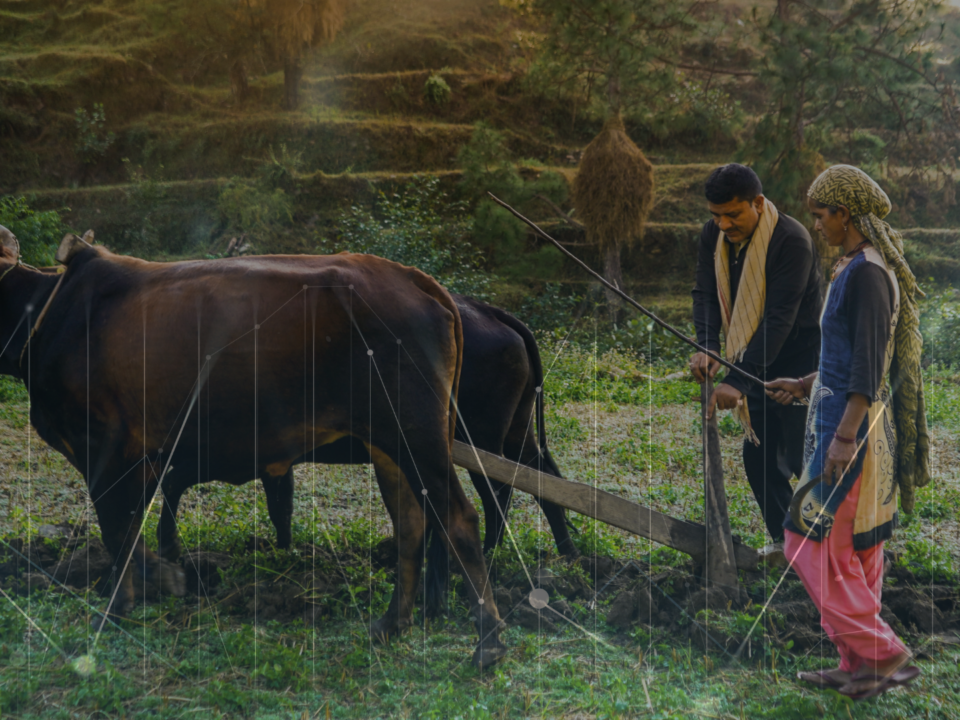
Applications close on October 24th and are reviewed on a rolling basis.
